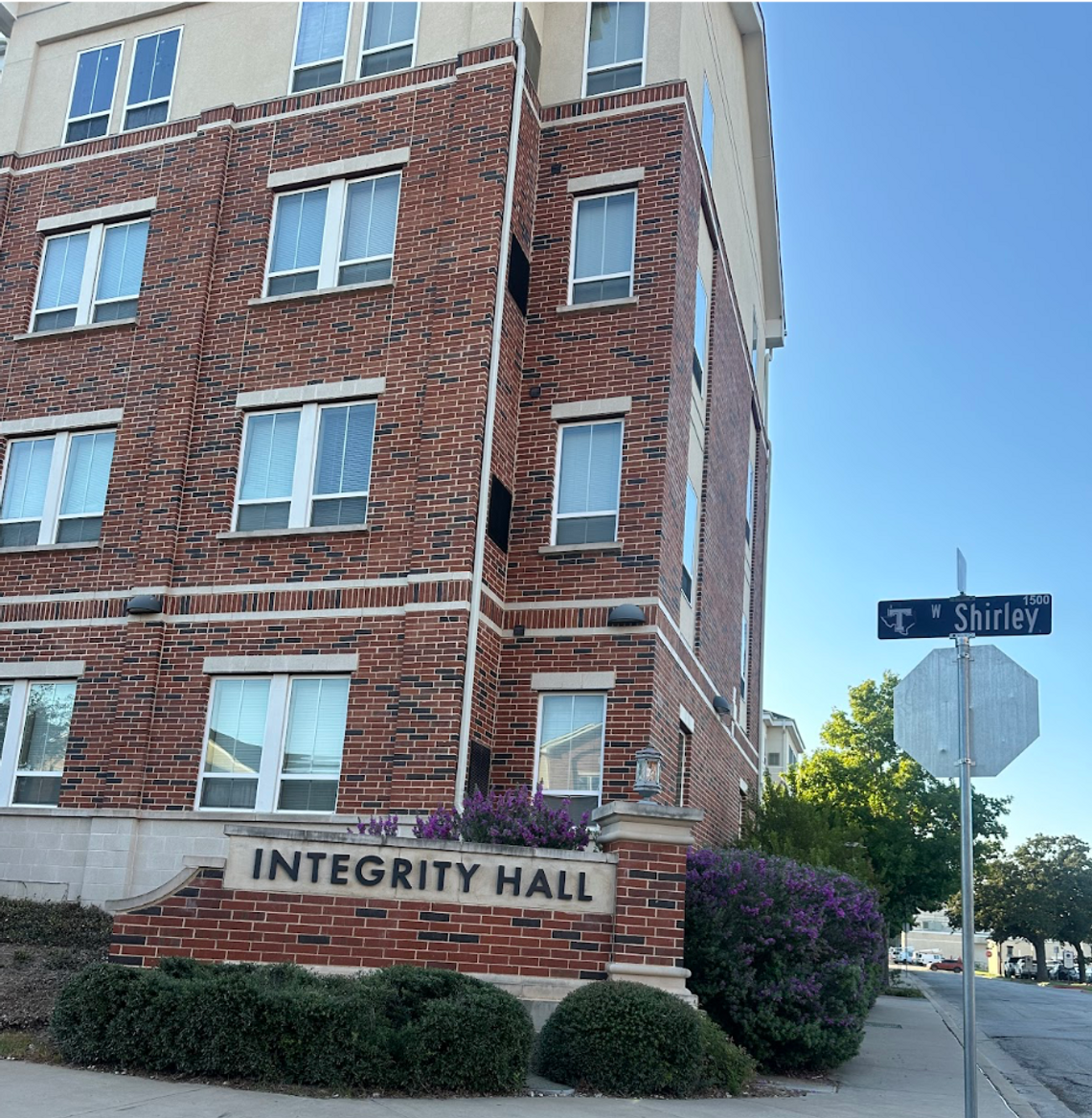BY DREW FLEMING/Multimedia Journalist
The choice between living on campus or off campus is going to play a big role throughout your college career. Living situations can factor into your overall experience of college and your mental health.
According to Usnews.com, at Tarleton State University, 36% of students lived on campus and 64% lived off campus in fall 2023. On or off campus living both bring up a variety of advantages and disadvantages.
Emily Brown is a sophomore at Tarleton that enjoyed her time on campus.
“Living on campus is really good for me, I like having quick access to campus events,” Brown said.
Living on campus gives students a strong sense of community and allows for the perfect environment to meet new people.
Five-minute walk to the dining hall, almost 24-hour access to the library and having a recreation center on campus is what many students find very helpful about living on campus.
There are a variety of study options on campus.
Honors Hall provides a serene private library to study. Barry B. Thompson student center on campus is full of places for students to mingle and get lunch. The Dick Smith library is open until 1 a.m. most nights, for students to utilize as a study space and tutoring services that are free to students.
While yes, this is available to every student, the access while living on campus is much more convenient.
Other than convenience, living situations are very important to consider. Living on campus or with a random roommate is an opportunity to gain real world awareness of how to make the best of situations and take responsibility and compromise. Living with someone you didn’t previously know teaches you many invaluable life lessons.
Along with learning how to live with someone, dorm life teaches you to follow rules set by your residential leader and university. Campus housing rules can be strict compared to apartment rules because of the liability of the university.
On the other hand, there are bonuses of living off campus as well. While some complain about the commute, living off campus has its perks.
“I enjoy the freedom of living in an apartment and seeing more of Stephenville because I live off campus,” Junior Ava Mikulecky said.
Living in an apartment or house allows you more control over your living situation and your routine as a whole. Compared to most colleges' traditional dorms, students prefer living in an apartment or house because it allows them more privacy and space.
On the other side of finances, picking your apartment or house and number of roommates allows you more control over your living situation. You are allowed more budget flexibility, making it more affordable.
The biggest downside of being an off campus student, is the daily travel to and from campus. Traffic can also be a stressful time to any commuters routine, including both parking and foot traffic.
Sydney Cannon, a junior, has never had the experience of living on campus.
“It’s a major difference commuting because of parking on campus and construction through Stephenville,” Cannon said. “As someone who has only lived off campus, parking is the only downside I see as a commuter.”
Compared to living on campus with a dining hall, commuters have to worry about cooking, cleaning and any extra utilities because they live in a house or apartment.
Lastly, as a commuter it can be more difficult to meet friends and connect with other students since they are not on campus.
With all that being considered, it is very important to think about your financial situation, social preferences and availability of off campus living when considering your housing options.
Ultimately, the best choice for you will depend on your individual circumstances and priorities. It's a good idea to research both options and weigh the pros and cons before making a decision.
.png)

Comment
Comments